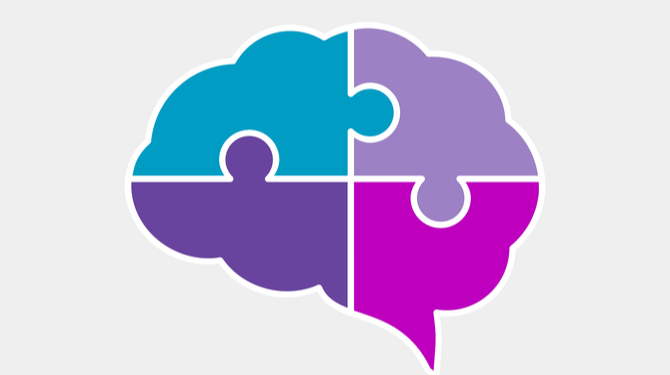Sign up for our free daily newsletter
YOUR PRIVACY - PLEASE READ CAREFULLY DATA PROTECTION STATEMENT
Below we explain how we will communicate with you. We set out how we use your data in our Privacy Policy.
Global City Media, and its associated brands will use the lawful basis of legitimate interests to use
the
contact details you have supplied to contact you regarding our publications, events, training,
reader
research, and other relevant information. We will always give you the option to opt out of our
marketing.
By clicking submit, you confirm that you understand and accept the Terms & Conditions and Privacy Policy
Florida lawyer Haley Moss has a ‘laser-like focus’ during document reviews and an ability to catch anomalies and data details that others miss. She attributes these skills to the fact that she is autistic, having become the first openly autistic person to be admitted to the Florida bar back in 2019. This is just one example of the unique qualities that neurodiversity can contribute to law firms.
Neurodiversity refers to the natural range of variation in human brain function and processing, which differs from the so-called 'neurotypical' person who processes information in a way normalised by society.
The Law Society of England and Wales acknowledged in 2018 that 'recognising and supporting this diversity is important to the legal sector'; ignoring it means potentially losing out on highly skilled talent. Many law firms are already home to neurodiverse colleagues. Experts estimate that 10-15% of the UK workforce is neurodivergent, some of whom remain undiagnosed.
A striking example of the benefits of neurodiversity can be drawn from Hewlett Packard Enterprise’s experience. In collaboration with the Australian Department of Human Services and a social enterprise group, it launched a programme to actively break down employment barriers for people with autism.
The collaboration focused on five key outcomes: to create information assets to help raise awareness of the value of neurodiversity in the workplace; to collaborate in the creation of cross-company common training curriculums; to hire autistic people; to exchange experiences in the areas of sourcing, training, hiring and work experience programmes; and to retain individuals in the autism spectrum. HPE discovered that neurodiverse software teams were 30% more productive than others.
In 2018, Linklaters partnered with Auticon to hire neurodiverse workers into its technology team in recognition, according to partner Owen Clay, of the fact that "a diverse workforce enables us to deliver the best possible service to our clients". But initiatives like this remain unusual within the legal profession.
---------------
This article is part of a series by London employment specialists CM Murray, click here for more insight on Navigating Partnership Law
----------
Understanding neurodiversity
Neurodiverse individuals have distinct ‘spikes’ in their skillsets and certain ‘dips’ compared to neurotypical workers, whose profiles are less varied. The peaks set neurodiverse talent apart.
Dyslexic profiles, for example, can display spikes in creativity, a heightened ability to link ideas and the ability to see in 3D. Dyslexics often flourish as entrepreneurs. Dips may impact reading, writing or short-term memory, but are ameliorated through reasonable adjustments so firms can benefit from the peaks in the skills profile.
Peaks in autistic profiles include loyalty, low absence rates, high levels of dedication and attention to detail. Autistic individuals cope less well when in unstructured situations and when communication is poor. They may not pick up on non-verbal communication and unwritten rules; their behaviour can be misconstrued as rude or unfriendly. If not properly considered, autistic individuals can become isolated and ostracised.
Dyspraxic individuals can have exceptional verbal skills making them excellent speakers and trainers. They can be highly creative, different thinkers. Physical co-ordination, judging distances, managing social sequences, or not dressing smartly enough can be the 'dips'.
Firms should, however, avoid making assumptions about the skills of neurodiverse individuals; neurodivergence is a spectrum of behaviour and thinking patterns vary between individuals.
Legal issues and challenges
Neurodiversity can constitute a disability under the UK's Equality Act 2010, fixing firms with obligations to make reasonable adjustments so as not to treat individuals unfavourably because of their neurodiversity.
Disability discrimination protection starts from recruitment. Traditional hiring practices such as standardised application forms, aptitude tests and face-to-face interviews can pose barriers through the recruitment process. For example, some autistic individuals may struggle with eye contact or be socially awkward. They could be screened out by tests designed to evaluate the processing styles of neurotypicals.
Failure to make reasonable adjustments to standard recruitment processes for neurodivergent individuals was found to constitute disability discrimination in Government Legal Services (GLS) v Brookes.
Part of GLS’s recruitment process required candidates to answer multiple-choice questionnaires. The ‘absolute’ nature of the questioning was a barrier to Brookes, an autistic trainee solicitor, who requested that she be allowed to provide short narrative answers as an alternative.
GLS rejected her proposal but offered her additional time instead. It indirectly discriminated against Brookes and failed to make a reasonable adjustment; having disclosed her ‘disability’ she was put at a disadvantage compared to candidates without autism.
GLS’s proposed adjustment of extra time was not a ‘reasonable adjustment’ as it did not alleviate the impact of her condition. It failed to properly consider Brookes' request which would have provided a less discriminatory way of meeting its objective of testing candidates.
If an individual has not disclosed their disability or is unaware of it, legal obligations will still apply if the firm has constructive knowledge of the condition based on other information available to it. Being diagnosed during employment also triggers obligations for firms.
Practical steps
Law firms must understand what a neurodivergent employee finds difficult in the workplace through open discussion. For example, a person with autism or attention deficit hyperactivity disorder (ADHD) may find busy corridors and noise too distracting. Other examples include finding unwritten social cues difficult to pick up on.
Work colleagues must be provided with information about neurodivergence through awareness campaigns and training. The key to neurodiversity inclusion is ensuring everyone feels psychologically safe to discuss their needs and adjustments, with the benefit of expert medical and occupational health advice where relevant.
Firms should evaluate their recruitment processes and adjust assessment tests or interview formats in specific cases. They should also provide unconscious-bias training for interviewers to ensure they don't, for example, make assumptions based on the body language or social competence of interview candidates.
Policies should also be updated to refer to neurodivergence, providing examples of reasonable adjustments already in place to reassure candidates and staff that it is safe to ask for support. The Advisory, Conciliation and Arbitration Service (ACAS) provides useful further guidance on improving equality, diversity and inclusion in the workplace.
Being different
Employers acknowledge the importance of good mental health, allowing colleagues to talk openly about it so they feel supported. They should adopt a similar approach to neurodiversity.
While there are compelling legal reasons for making workplace adjustments to embrace neurodiversity, recognising its positive aspects will allow neurodiverse individuals and those they work with to excel.
High-ranking naval officer, Second Sea Lord Vice Admiral Nick Hine, often tells his story of autism to highlight how his neurodiversity made him better at his job. Whilst described by peers as blunt and challenging, his ability to think differently gave him a huge advantage as a leader. He refers to his brain being wired differently. It doesn’t mean he is odd, disabled or less capable; just different.
Emma Bartlett is a partner and Wonu Sanda is a senior associate at law firm CM Murray
Email your news and story ideas to: [email protected]






3.jpg)

1.jpg)
